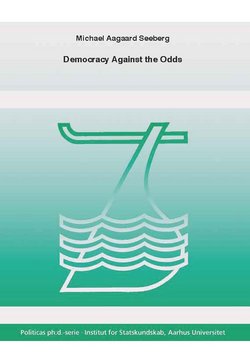Michael Aagaard Seeberg
Democracy Against the Odds

Why have some countries sustained a democratic political system in the face of unfavorable settings, such as low levels of socioeconomic development and a lack of democratic neighboring countries? In two steps, the project studies the determinants of political regime stability in electoral democracies with unfavorable settings: It systematically identifies stable democracies with unfavorable settings and it proposes a framework for a better understanding of the democratic stability of these cases. The framework is used to better understand four ‘deviant’ democracies in two periods, viz. India and Costa Rica during the Cold War and Mongolia and Ghana during the post-Cold War era.
The framework focuses on the intersection between political parties and civil society. Programmatic and intra-organized parties are an important foundation for regime stability. However, it is argued that the key to understanding democratic stability is to bring in civil society. Only if parties are tied to politically active parts of civil society will political elites sanction democratic rule. Slightly different combinations of these variables can have a similar effect on democratic stability: Either parties have roots in civil society or civil society responds to political elites’ abuse of power. The analysis demonstrates that the nexus between political parties and civil society plays an important role for stability in democratic political systems.
![]() Ophavsretten tilhører Politica. Materialet må ikke bruges eller distribueres i kommercielt øjemed.
Ophavsretten tilhører Politica. Materialet må ikke bruges eller distribueres i kommercielt øjemed.